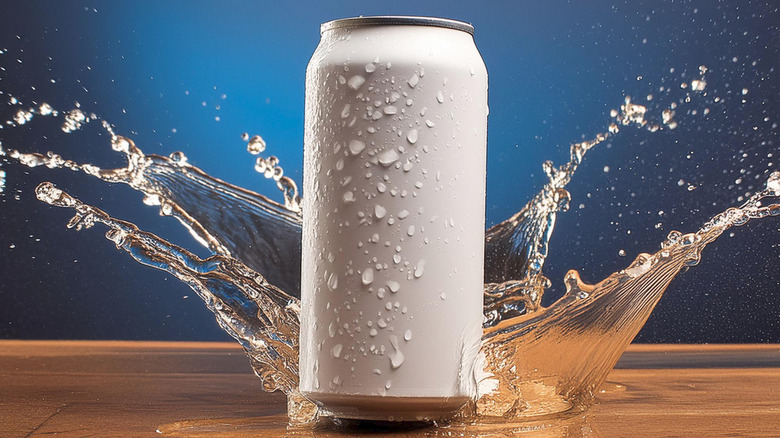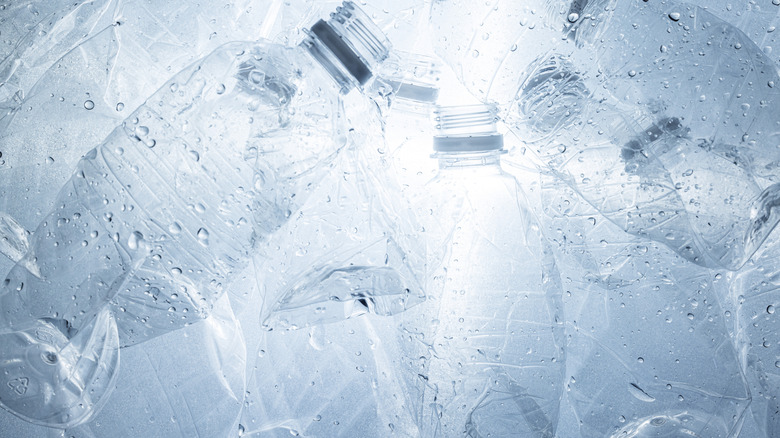Why Canned Water Will Never Replace Bottles
On any trip, or just any time you're not at home, it can be hard to stay hydrated. You go to get water at a convenience store, and you're presented with several choices: boxed water, canned water, and bottled water. You notice that canned water, in particular, is really expensive. And therein lies the problem of canned water: It's just too pricey.
Even though water bottles are recyclable, they usually end up in the trash, making them literally just trash. That's why various companies are trying to come up with easily portable water that won't devastate the environment. One possible solution is the use of aluminum cans, something brands like Liquid Death have on lock. Aluminum cans are seemingly a great solution because they're lightweight and already common for seltzers and beer (even cans of wine are on the rise). The best news of all is that they are almost infinitely recyclable. When aluminum cans are broken down, there is no degradation or loss of the material. To put it in perspective, three-fourths of the aluminum produced since the late 19th century is still in use today.
So how come water in aluminum cans hasn't replaced all of the water in plastic bottles? For starters, a big problem is that canned waters aren't resealable, and the resealable aluminum bottles are expensive. If you compare generic store-brand plastic water bottles to, say, Open Water's aluminum water bottles, Open Water's 12 pack is $23.99 while Walmart's 24 pack of Great Value plastic bottles is about $4 or less.
The packaging doesn't matter much if we run out of water
Aluminum water containers avoid many of the worst pitfalls of plastic water bottles such as containing microplastics. Another problem that cannot be solved by any container is that bottled water companies are destroying aquifers, robbing springs and rivers of water, and taking water away from entire towns. While towns are fighting back, some companies like Nestlé are so massive and so entrenched through government lobbying that it's doubtful much headway will be made. It makes sense why companies rushed to create lines of bottled water. Water is bought on the cheap and then sold at enormous profits.
Bottled waters are also not as strictly regulated as tap water. While the FDA oversees bottled water in terms of its labeling, states are the ones that are supposed to regulate the water that goes into the bottles, but many don't do it. Tap water is regulated by the EPA and is sanitized and tested to ensure we aren't drinking nasty contaminants. Bottled waters are not tested for such things. We might all be better off in trying to install free public fountains in as many places as possible and keeping bottled water to a minimum for things like emergencies and long car trips through the desert.

